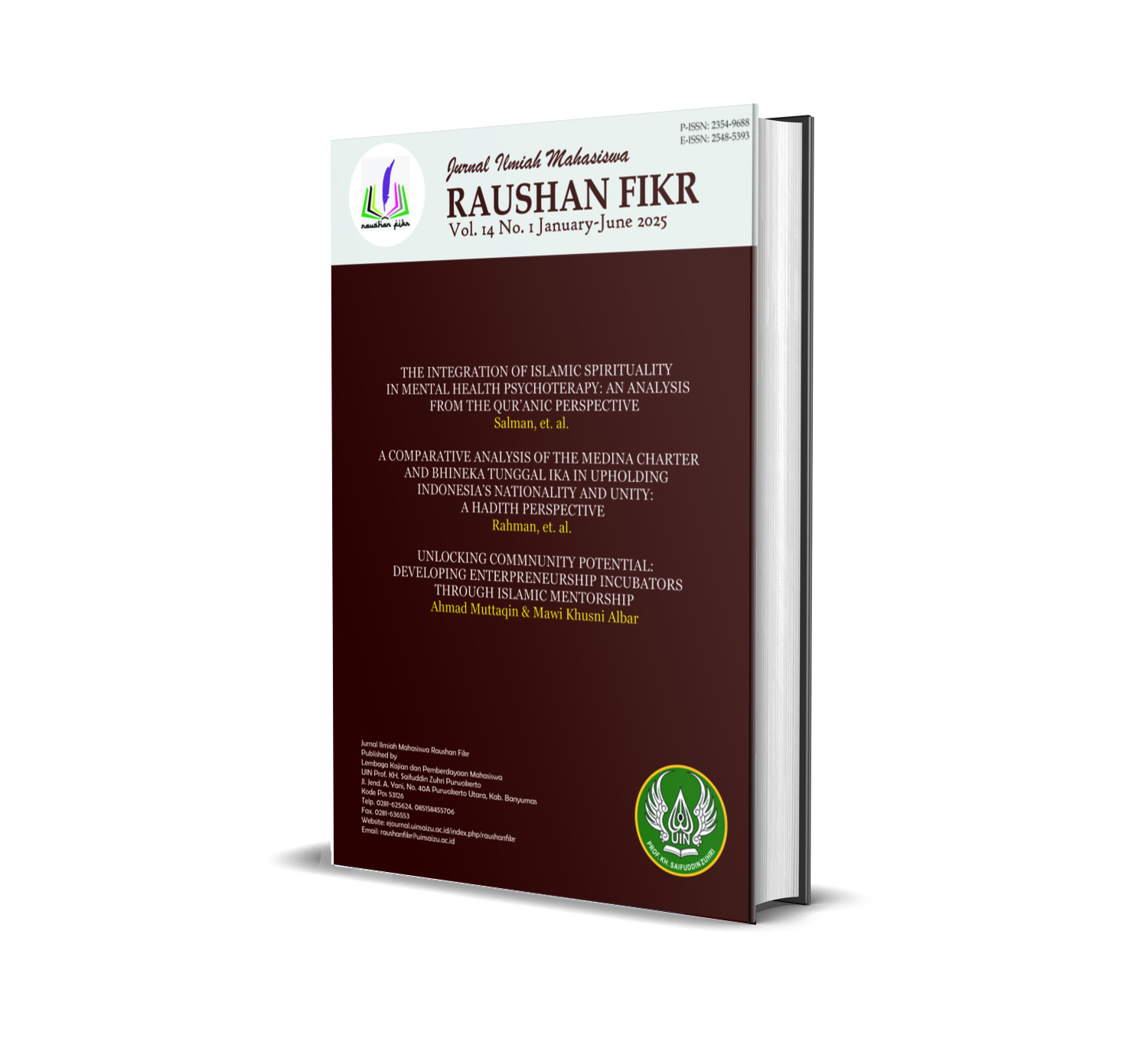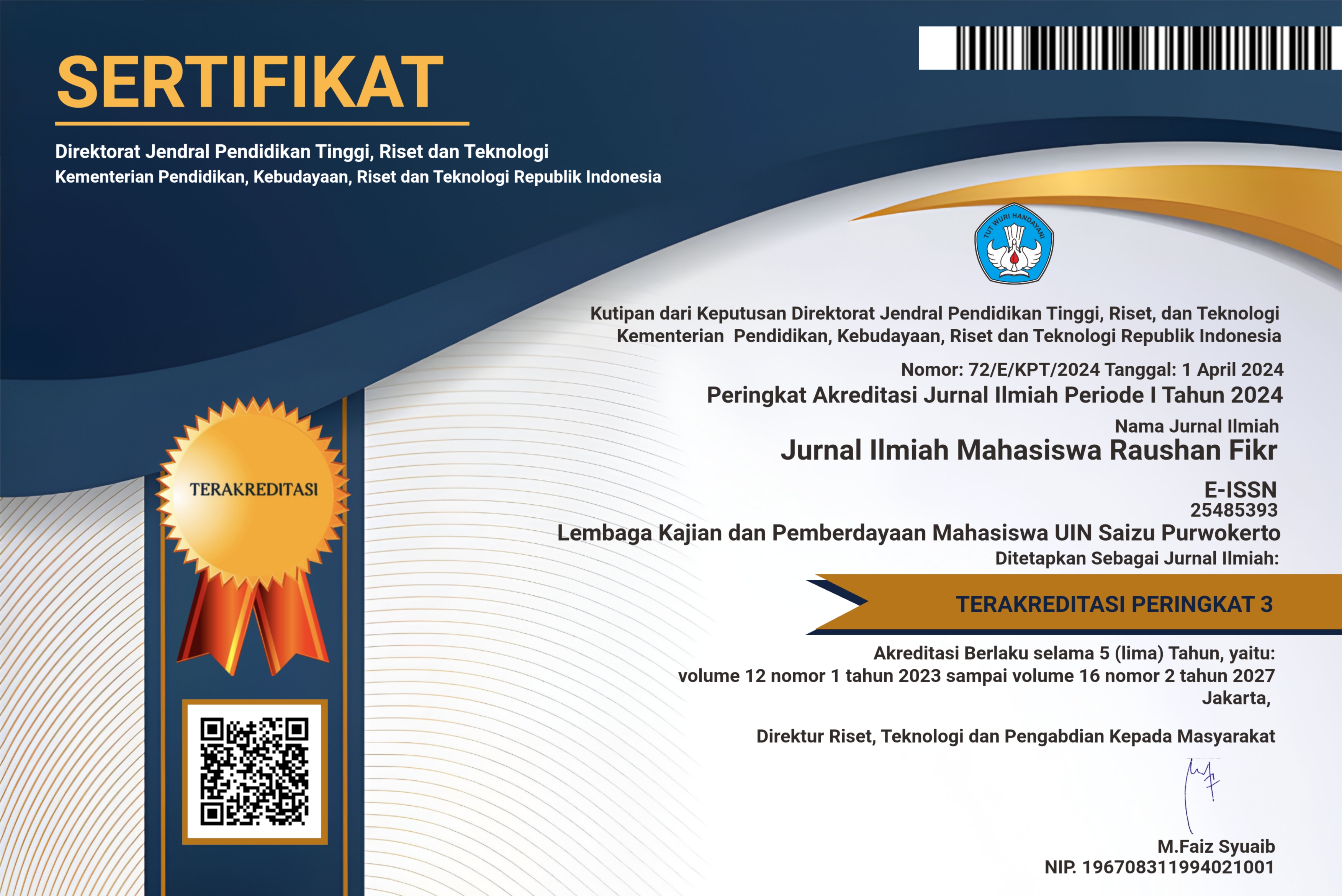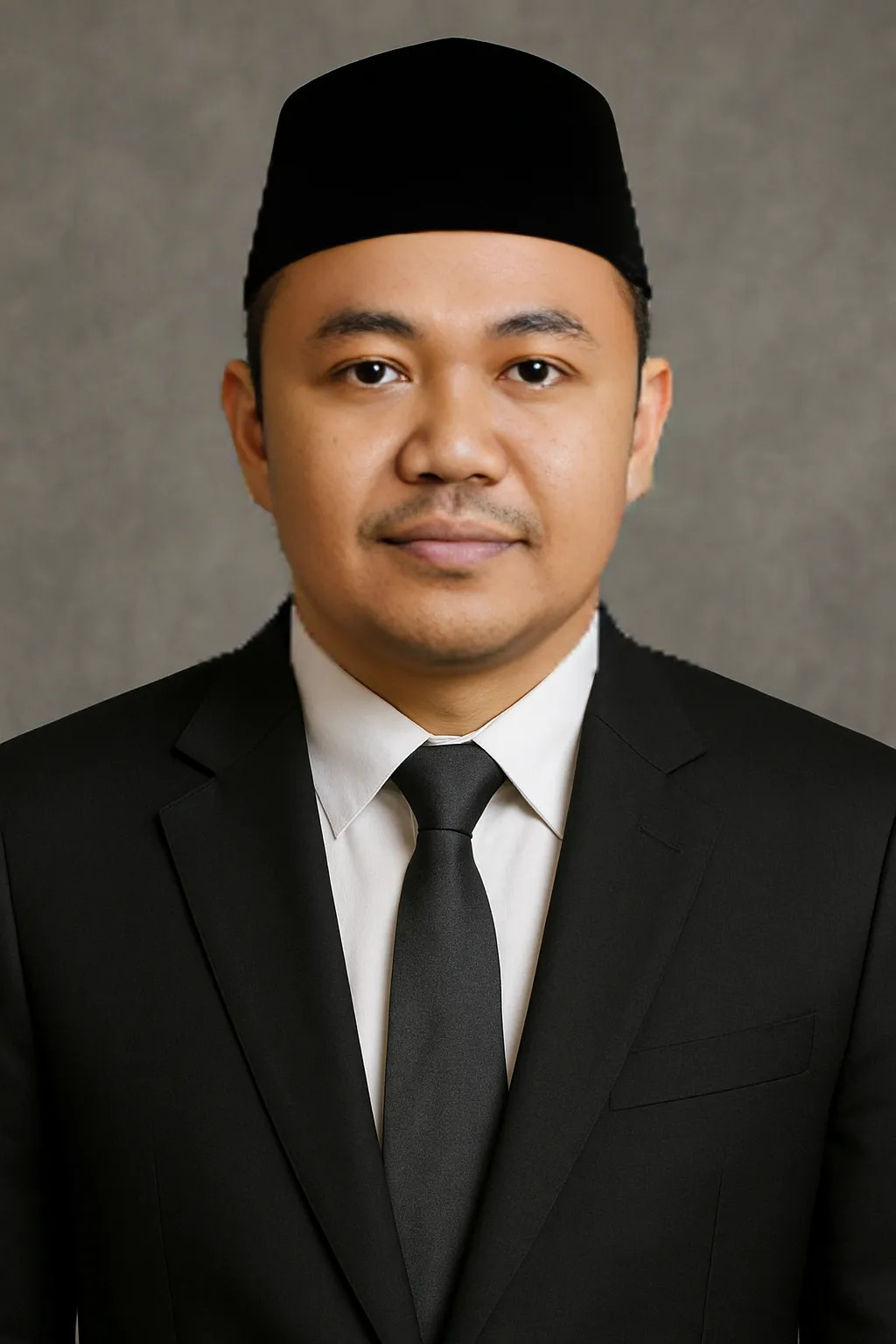Revisiting Qur’anic Visions of Equality: A Hermeneutical Engagement with Women’s Emancipation Discourse
DOI:
https://doi.org/10.24090/jimrf.v14i1.13608Keywords:
Philosophical Hermeneutics, Feminist Exegesis, Emancipatory Theology, Human Dignity, Gender EqualityAbstract
This study reexamines Qur’anic verses on women through philosophical hermeneutics and critical gender philosophy to construct an emancipatory narrative affirming equality and freedom in Islam. Key verses such as Q.S. Al-Ahzab [33]:35, Al-Nisa [4]:1, [4]:34, Al-Tawbah [9]:71, Al-Hujurat [49]:13, and Al-Isra [17]:70 are analyzed using library research, drawing from classical and contemporary tafsir and critical theorists like Gadamer, Ricoeur, Butler, and Fraser. Concepts such as fusion of horizons, distanciation, performativity, and recognition justice guide a rereading that challenges patriarchal interpretations. The findings affirm that the Qur’an provides a strong ethical and theological basis for emancipatory theology, rooted in rahmah (compassion), karāmah insāniyyah (human dignity), and ta’dīl (justice). Women are positioned as autonomous moral agents rather than passive legal subjects. A justice-based reinterpretation is thus essential for building a transformative Islamic paradigm aligned with contemporary gender equality discourses.Downloads
References
Abou-Bakr, Omaima, and Mulki Al-Sharmani. 2020. “Islamic Feminist Tafsir and Qur’anic Ethics: Rereading Divorce Verses.” Islamic Interpretive Tradition and Gender Justice, h 23-66.
Adam, Adiyana, Hasyim Haddade, and Rahmi Damis. 2022. “Wawasan Al-Quran Tentang Kesetaraan Gender.” Jurnal Pendidikan Islam 8 (2): 169–79. https://doi.org/10.37286/ojs.v8i2.153.
Ardiansyah, A. F., Nasution, H., & Darta, A. (2024). Understanding Religious Moderation and Quranic Verses on Interfaith Relations Among Ulama in North Sumatera Binjai City. Jurnal Ilmiah Mahasiswa Raushan Fikr, 13(2), 446–457. https://doi.org/10.24090/jimrf.v13i2.11843
Arsal, Arsal, Busyro Busyro, and Maizul Imran. 2020. “Kepemimpinan Perempuan: Penerapan Metode Tafsir Hermeneutika Feminisme Amina Wadud.” AL QUDS : Jurnal Studi Alquran Dan Hadis 4 (2): 481. https://doi.org/10.29240/alquds.v4i2.1976.
Bakhshizadeh, Marziyeh. 2023. “A Social Psychological Critique on Islamic Feminism.” Religions 14 (2). https://doi.org/10.3390/rel14020202.
Barlas, Asma. 2023. “When Gender Is a Problem in Islamic Theology and Qur’anic Tafsir.” In Forum 02 (01).
Chaudhry, Sharaiz. 2023. “Towards a Theology of Class Struggle: A Critical Analysis of British Muslims’ Praxis against Class Inequality.” Religions 14 (9). https://doi.org/10.3390/rel14091086.
Darzi, Ghasem. 2023. “The Story of Human Creation in the Qur’an and the Old Testament: A Linguistic-Narrative Approach for Reconstructing the Dominant Gender Discourse.” Journal of Interdisciplinary Qur’anic Studies 2 (1): 31–48. https://doi.org/10.37264/jiqs.v2i1june2023.2.
Duderija, Adis. 2020. “Contemporary Muslim Male Reformist Thought and Gender Equality Affirmative Interpretations of Islam.” Feminist Theology 28 (2): 161–81. https://doi.org/10.1177/0966735019886076.
Dutta, Sagnik. 2022. “Becoming Equals: The Meaning and Practice of Gender Equality in an Islamic Feminist Movement in India.” Feminist Theory 23 (4): 423–43. https://doi.org/10.1177/14647001211023641.
Digarizki, I. (2021). Ayat-Ayat Perdamaian dalam Tafsir Al-Azhar Perspektif Teori Double Movement Fazlurrahman. Jurnal Ilmiah Mahasiswa Raushan Fikr, 10(1), 114–127. https://doi.org/10.24090/jimrf.v10i1.4638
Elena, Raquel, and Sicilia Lorenzo. 2024. “Women and Islam , Theoretical Issues and Current Affairs Mujer e Islam , Cuestiones Teóricas y Actualidad.” https://doi.org/10.56294/piii2024127.
Frandsen, Christina Egmose, Erik Bo Pedersen, and Hanne Agerskov. 2020. “When Kidney Transplantation Is Not an Option: Haemodialysis Patients’ and Partners’ Experiences—A Qualitative Study.” Nursing Open 7 (4): 1110–17. https://doi.org/10.1002/nop2.487.
Gadamer, Hans-Georg. 2024. Truth and Method, Translation Revised by Joel Weinsheimer and Donald G. Marshall. Ed. Wahrheit Und Methode. London: Continuum.
Holistik, Hermeneutika, and Terhadap Ayat-ayat Al- Qur. 2024. “Hadis Studies Holistic Hermeneutics of Qur ‘ Anic Verses : Reinterpreting for Achieving Gender Equality in Contemporary Islamic Society Menafsirkan Ulang Untuk Mewujudkan Kesetaraan Gender Dalam Masyarakat Islam Kontemporer” 5 (2): 176–91.
Journal, International. 2017. “Gender Equality.” Nursing Management (Harrow, London, England : 1994) 23 (9): 12. https://doi.org/10.7748/nm.23.9.12.s14.
Mainiyo, Attahir Shehu. 2023. “Impact of Qur’Anic Narratives in Surah Al-Kahf on the Life of Muslims in North-West, Nigeria.” Al-Risalah 14 (2): 299–315. https://doi.org/10.34005/alrisalah.v14i2.2658.
Nielsen, Liv Juul, Katja Poulsen, Anders Lundme Funch, and Kirsten Schultz Petersen. 2023. “The Lived Experiences of Endometriosis in Adolescence—A Critical Hermeneutic Perspective.” Scandinavian Journal of Caring Sciences 37 (4): 1038–47. https://doi.org/10.1111/scs.13176.
Noor, Muhammad Fauzi. 2024. “A Feminist Interpretation of Qur’Anic Texts By Amina Wadud and Zaitunah Subhan.” INTIHA: Islamic Education Journal 1 (3): 144–56. https://doi.org/10.58988/intiha.v1i3.311.
Rofiq, Nur, and Universitas Tidar. 2024. “Gender , Faith , and Reform : A Narrative Review of Islamic Feminism And,” no. 2, 66–81.
Roodsaz, Rahil. 2024. “Queering Potentials: Negotiations of Gender, Parenthood, and Family in Polyamorous Relationships in the Netherlands.” Sexualities 27 (4): 773–90. https://doi.org/10.1177/13634607211037484.
Rozy, Yahya Fathur. 2023. “The Hermeneutics Influence on Feminist Exegesis: A Case Study on Amina Wadud.” QiST: Journal of Quran and Tafseer Studies 2 (3): 369–81. https://doi.org/10.23917/qist.v2i3.2908.
Sarnoto, Ahmad Zain, Sri Tuti Rahmawati, and Lamya Hayatina. 2021. “Education That Liberates and Educates According to the Perspective of the Qur’an.” Jurnal Konseling Dan Pendidikan 9 (4): 351. https://doi.org/10.29210/163200.
Utami Ginting, Lestari Dara Cinta, et al. 2024. “Women in the Public Sphere: Gender Equality in Islamic Theology.” Pharos Journal of Theology 105 (1).
Wyk, Tanya van. 2023. “‘Unhiding’ Women: Decolonising the Mind of a Female Systematic Theologian.” HTS Teologiese Studies / Theological Studies 79 (1): 1–7. https://doi.org/10.4102/hts.v79i1.8906.
Downloads
Published
How to Cite
Issue
Section
License
Copyright (c) 2025 Aisyah Nur, Al Fiqri Ardiansyah, Mei Arina Ilmi AS

This work is licensed under a Creative Commons Attribution-NonCommercial-ShareAlike 4.0 International License.
Authors who publish with this journal agree to the following terms:
- Authors retain copyright and grant the journal right of first publication with the work simultaneously licensed under a Creative Commons Attribution-NonCommercial-ShareAlike 4.0 International License that allows others to share the work with an acknowledgement of the work's authorship and initial publication in this journal.
- Authors are able to enter into separate, additional contractual arrangements for the non-exclusive distribution of the journal's published version of the work (e.g., post it to an institutional repository or publish it in a book), with an acknowledgement of its initial publication in this journal.
- Authors are permitted and encouraged to post their work online (e.g., in institutional repositories or on their website) prior to and during the submission process, as it can lead to productive exchanges, as well as earlier and greater citation of published work (See The Effect of Open Access).
















